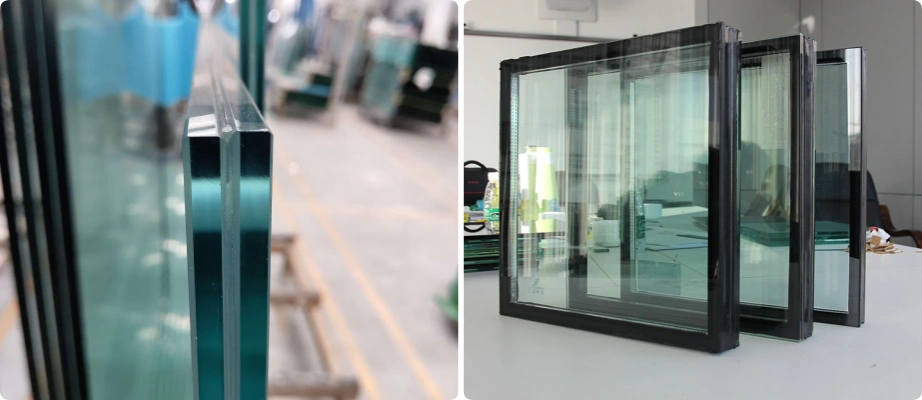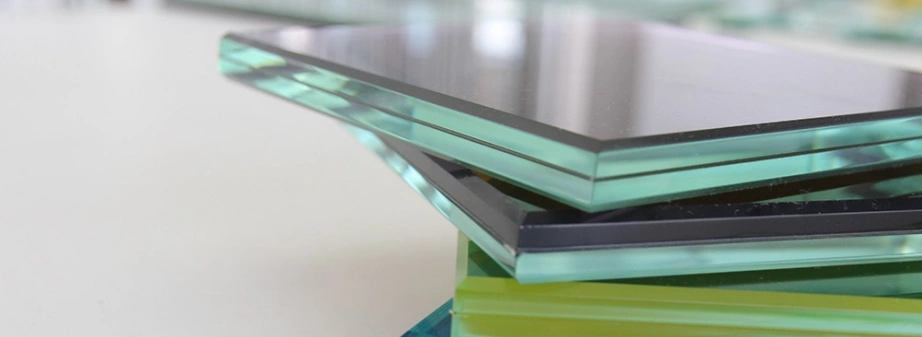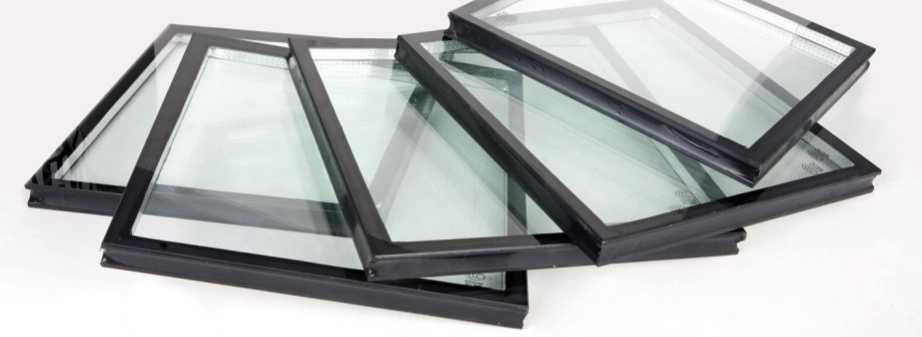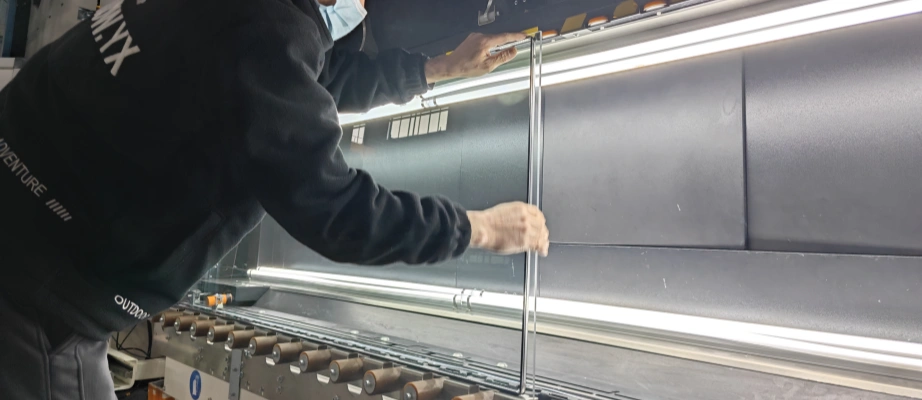Choosing proper acoustic glass is essential for improving living conditions. This article examines how soundproof glass functions, available varieties, selection factors, and how GLASVUE solutions deliver complete noise management for homes.
Understanding Soundproof Glass Technology
How Soundproof Glass Operates
Soundproof glass doesn’t remove noise completely, but greatly reduces its transmission. Sound travels as vibrations in the air. When these vibrations hit glass, three things can happen. Part of the sound bounces back. Another portion gets absorbed. The remainder passes through the material.
High-performance soundproof glass uses three main techniques. First, it uses thicker glass panels. Second, it includes special layers that soak up sound. Third, it carefully designs the spacing between panes, which may contain air or other gases.These approaches weaken sound energy.
The Decoupling Principle
A primary technique involves decoupling. This means separating the vibrations between two glass sheets. The air or gas space between them serves as a barrier. This barrier greatly reduces sound energy, decreasing its strength before passing to the other side.
Types of Soundproof Glass
There are two main categories: Laminated glass and Insulated glass units (IGUs). Each type has its unique features and advantages, and can meet different noise reduction requirements.

Measuring Performance
The effectiveness of soundproof glass is measured in decibels (dB). Noises vary across frequency ranges. For instance, traffic noise typically resides in low to mid-frequency bands. Conversely, voices or horns occupy mid to high-frequency bands. Superior soundproof glass targets these ranges. IGUs work well against high-frequency noise, while laminated glass effectively blocks low-frequency sounds like traffic rumble.
Key Factors for Choosing Home Soundproof Glass
Evaluating Your Noise Situation
Before selecting acoustic glass, carefully assess the primary noise sources nearby. Are they from heavy traffic, building sites, or neighborhood activities? Each noise type needs specific solutions. For instance, laminated glass works better for low-frequency traffic noise.
Thermal Efficiency Considerations
Of course, when selecting glass for windows and doors, sound insulation isn’t the only consideration — thermal performance is also essential. High-performance insulated glass units (IGUs) can significantly improve the U-value (thermal transmittance) and Solar Heat Gain Coefficient (SHGC).
For example, Low-E coated glass reduces heat transfer by reflecting infrared energy, minimizing unwanted heat loss or gain, keeping interiors cooler in summer and warmer in winter.
Meanwhile, PVB laminated glass is effective in blocking ultraviolet (UV) radiation, helping to protect interior furnishings from fading and ageing.
Acoustic Glass Choices
Laminated Glass: Optimal solution for low-frequency noise reduction

Modern acoustic laminated glass is typically made by bonding multiple layers of glass with a polymer interlayer—either standard PVB or soundproof PVB—offering excellent performance in reducing low-frequency noise such as traffic or machinery sounds.
If your home is located near a main road or railway and constantly exposed to the rumble of low-frequency noise, acoustic laminated glass is an excellent choice for sound insulation.
Why It’s Effective
Laminated glass works well due to its flexible interlayer. When sound hits the glass, the interlayer soaks up and spreads vibrations. This cuts down transmitted sound energy. Compared to a regular glass of the same thickness, laminated glass lowers noise by 2-3 dB. With special acoustic interlayers, it can reduce noise by another 3 dB. It’s particularly good for low-frequency sounds like traffic or voices.
Interlayer materials vary in properties:
PVB: Widely utilized for its strong bonding and noise reduction capabilities.
SGP: Five times stronger than PVB, employed in hurricane or bulletproof applications.
EVA: Facilitates processing and excels at high-frequency noise reduction but is less durable, making it less common in architectural glass.
Insulated Glass Units (IGUs): The mostcommonly used soundproofing solution

Insulated glass units contain multiple panes divided by a spacer with drying agents, creating a sealed gas space. This design works well for both heat insulation and noise reduction.
How IGUs Work
Sound Wave Reflection:
When sound waves encounter different media—such as air and glass—reflection occurs. The presence of an air gap increases opportunities for sound waves to be reflected, thereby reducing the amount of sound transmitted.
Sound Absorption:
Gas molecules within the air gap absorb sound energy, particularly in the mid-to-high frequency range, which further minimises sound transmission.
Decoupling Effect:
The two panes of glass vibrate independently. The air layer between them acts as a buffer, reducing the transmission of vibration and lowering the efficiency of sound propagation.
Mass–Spring–Mass System:
The double-glazed structure, with two layers of glass and an intermediate air space, forms a “mass–spring–mass” system. This configuration is highly effective at dampening high-frequency vibrations.
For thermal insulation, IGUs perform remarkably. They can reduce the heat transfer coefficient by over 50% compared to single-pane glass. Filling the cavity with argon gas further lowers the U-value, enhancing insulation. The dry gas cavity (with a dew point below -40°C) prevents internal fogging, ensuring clear visibility and consistent performance.
GLASVUE’s IGU Solutions
GLASVUE has 29 years of industry experience and is dedicated to developing high-performance insulated glass units (IGUs) for residential applications. Our IGUs feature a dual-seal system—using butyl sealant combined with structural sealant or silicone sealant—to ensure airtightness and long-term durability.
Spacer bars are available in aluminium or warm-edge options, providing customers with a variety of choices.
GLASVUE offers high-performance double- and triple-layer insulated glass. These are ideal for creating comfortable, healthy living environments. The triple-layer glass meets 7-star building standards and is five times more insulating than standard double-layer glass. It also delivers natural noise reduction without requiring additional interlayers, effectively blocking external noise.
GLASVUE incorporates Low-E coating technology into its IGUs. This coating reflects solar heat, reducing SHGC and U-values. It maintains warmth in winter and coolness in summer, reducing energy costs.
GLASVUE Product Selection
Areas Near Busy Roads (e.g., urban arterials, highways)
Basic Solution
Glass configuration: 5 + 0.76PVB + 5 + 12A + 5
Description:
A combination of single laminated glass and an insulated air space, offering a balance between acoustic and thermal performance. Ideal for residential buildings facing the street.
Performance: Reduces noise by approximately 35–40 dB, effectively blocks low-to-mid frequency traffic noise (such as tyre friction and engine sounds).
Double Laminated IGU (For Extreme Noise Environments)
Glass configuration: 6 + 1.14PVB + 6 + 12A + 5 + 1.14PVB + 5
Description:
Dual laminated layers with an insulated gap in between, designed to block a wide range of noise frequencies. Ideal for homes near construction sites or expressways.
Performance: Noise reduction exceeds 50 dB. Must be paired with high-performance window frames, such as thermally broken aluminium casement systems.
Internal Residential Partitions (e.g., between bedrooms and living rooms)
Glass configuration: 6 + 12A + 6
Description:
Standard double glazing with a simple structure and moderate cost. Provides basic sound insulation for mid-to-high frequency noises. Suitable for internal residential partitions.
Performance: Reduces noise by approximately 30–35 dB.
Glass configuration: 5 + 0.76PVB + 5
Description:
Single laminated glass offers a cost-effective solution. Effectively reduces indoor low-frequency noise such as footsteps and conversations.
Performance: Suitable for rooms where soundproofing requirements are moderate.
GLASVUE excels in customized laminated safety solutions, providing guidance, risk assessments, and engineering design. They balance energy efficiency, acoustic comfort, and aesthetic appeal. GLASVUE’s factories employ advanced automated production lines (over 80% automation) with leading equipment from Glaston, Bottero, and North Glass. Their products comply with over 10 international standards, including those in the United States, Australia, Europe, and China, demonstrating their quality and reliability.
Professional Installation is Crucial
The performance of soundproof glass hinges on proper installation. Even the finest glass may underperform if installed incorrectly. Tight seals between the glass and frame are essential. Selecting an appropriate frame type (e.g., aluminum windows with EPDM seals) prevents noise leakage.
Maintenance Tips
To ensure soundproof glass maintains peak performance over time:
Seal Inspections:
- Regularly check sealant strips around glass edges.
- Replace seals promptly if they show cracking, aging, or detachment.
Moisture Control:
- Prevent water infiltration at Insulated Glass Unit (IGU) edges, especially during rain or snow.
- Ensure protection in adverse weather to maintain IGU integrity.
Why Choose GLASVUE?

GLASVUE is not merely a glass supplier but a reliable partner dedicated to:
Creating tranquil, peaceful residences.
Enhancing comfort through superior insulation.
Ensuring safety with robust glass solutions.
Fulfilling designers’ creative visions with versatile aesthetics.
GLASVUE products are utilized in over 130 cities globally, serving more than 17,600 buildings. At least 11.5 million individuals use their glasses daily, underscoring the trust and quality of their offerings.
With GLASVUE, homeowners and architects realize their visions. Let us craft a quiet, comfortable, and secure home with high-performance soundproof glass.
FAQ
Q1: What’s the best glass for homes near highways?
A: Double-laminated IGUs like 6+1.14PVB+6+12A+5+1.14PVB+5 cut noise by over 50 dB.
Q2: Does Low-E coating help with soundproofing?
A: It primarily enhances thermal insulation by reflecting heat, but also supports noise control when paired with laminated or insulated configurations.
Q3: Are design options available?
A: Yes, choices like built-in blinds or decorative finishes combine functionality with personalized aesthetics.
